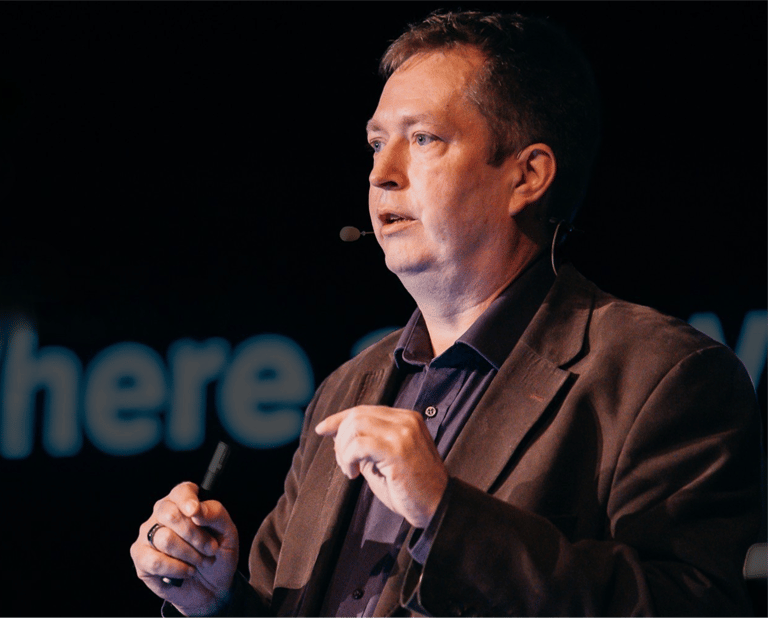

Esko Reinikainen helps people make sense of artificial intelligence by focusing on building practical judgment rather than technical expertise. His approach starts with where learners are, not where the technology is. AI literacy, in his view, is not about memorising terminology or chasing the latest model release. It is about understanding core concepts well enough to recognise useful applications, ask the right questions, evaluate vendor claims critically, and anticipate second order effects.
His route to AI literacy work has been indirect, and this matters. He began as a theatre director, moved into cultural administration and local government, and spent over a decade helping organisations navigate complex transitions in public sector innovation, systems thinking, and network analysis. AI literacy is not primarily a technical challenge. It is a translation challenge. The difficult part is not the technology itself but helping people connect new concepts to their existing knowledge, recognise where AI genuinely adds value versus where it is oversold, and develop the judgment to use these tools wisely.
This cross domain experience shapes how he teaches. Understanding how people actually learn, how traditional organisations resist or embrace change, and how complex technologies create ripple effects across systems and society makes the difference between awareness and genuine literacy. He translates complex ideas by finding the right analogies, stripping away jargon, and connecting new concepts to patterns people already recognise. The goal is not to make learners into AI experts but to make them confident in their own judgment about when, where, and how AI might or might not be useful in their context.
Over several decades, he has designed and delivered training programmes across sectors and contexts. He has worked with public servants, government agencies, healthcare organisations, and creative industries across the UK, Netherlands, Finland, and Germany. He developed the AI Literacy Ladder, a progressive learning framework that moves from generative AI fundamentals through prompt engineering, retrieval augmented generation, AI agents, fine tuning, and multi agent systems. His current consulting work focuses on AI integration in traditional sectors, particularly healthcare organisations navigating AI implementation and regulatory frameworks.
This work requires intellectual curiosity, cross domain pattern recognition, and the ability to explain clearly without oversimplifying. It also requires honesty about limitations, trade offs, and uncertainties, which is why he emphasises critical thinking alongside technical understanding. His approach is grounded in systems thinking, viewing AI not as an isolated tool but as part of an interconnected system that includes workflows, regulatory frameworks, and organisational cultures.
For those seeking to develop genuine AI literacy, not just superficial awareness, his workshops provide a structured foundation built from first principles. The artificial intelligence landscape is evolving rapidly, and making informed decisions about AI use requires more than hype or fear. It requires practical judgment developed through clear, accessible learning that respects where you are starting from and where you need to go.
“AI literacy is not primarily a technical challenge. It is a translation challenge. The difficult part is not the technology itself, but helping people connect new concepts to their existing knowledge, recognise where AI genuinely adds value versus where it is oversold, and develop the judgment to use these tools wisely.”
